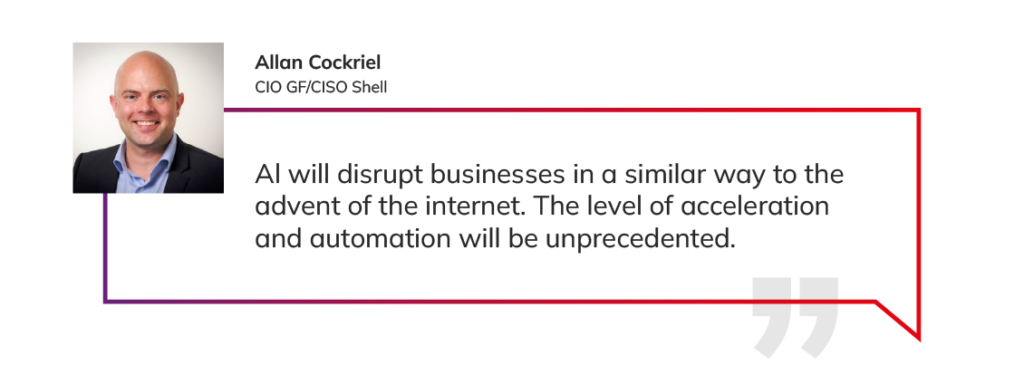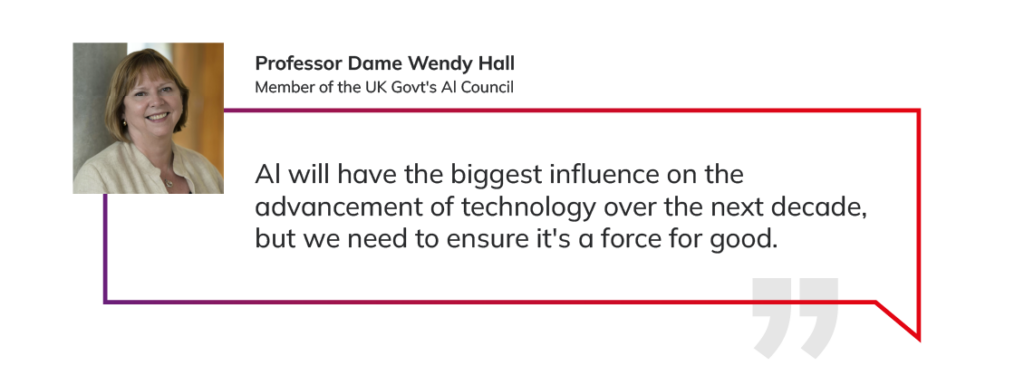- Solutions
Our solutions
Digital solutions combining strategy, technology, automation and people.
Technology advisory
Navigate the fast-changing world
Cloud engineering
Transformational change at scale and speed
Data solutions
Realise the untapped potential of data
AI and machine learning
Leverage your data assets
Application engineering
Optimise and grow your digital investment
Maintenance and support
End-to-end application management
Business process solutions
Manage business processes to reduce operating costs
Quality solutions
Independent testing for your systems and software
Digital experience platforms
Redesign your digital assets for the optimal customer experience
- Industries
Industries
We provide solutions tailored to your sector to assist you in identifying opportunities, realising value and opening up new markets.
Banking
Delivering next-gen banking solutions that drive growth
Healthcare
Patient empowerment, lifesciences, and pharma
Retail
Functional and emotional customer experiences online and in-store
Travel
Airlines, online travel giants, niche disruptors
Media and publishing
Content consumption for the tech-driven audience
Hi-tech and IOT
Real-time information and operational agility and flexibility to respond to market changes
Logistics and supply chain
Reimagine a supply chain that is more flexible and resilient to change
Education
Create an exciting and engaging digital experience for students and departments
Insurance
Streamline operations, expedite claims, and unlock new possibilities
- Our thinking
Our thinking
The latest updates to help future-focused organisations on the issues that matter most in business.
News
Keep up to date with company news and announcements at NashTech
Insights
The latest expertise and thought leadership from the NashTech and our clients
Resources
Expert guidance on everything from complex technological issues to current trends
Digital Leadership Report
Explore insights from the latest world's largest and longest-running study on technology leadership
- Case studies
- About us
About us
Find out what makes us who we are
Leadership
The diverse leadership team at NashTech
Nash Squared
A global professional services organisation with three key areas of focus
Vietnam 360°
Experience a 360 degree all-encompassing virtual tour of NashTech’s Vietnam offices
ESG
Discover our environmental, social and governance commitments
Diversity, equality and inclusion
Making diversity, equality and inclusion an integral part of our culture
Our locations
Discover our network of global offices, centres of excellence and innovation
- English
Generative AI's impact on the software development lifecycle

Generative AI (GenAI) is an advanced form of artificial intelligence that can generate new content, including code, text and images. Its integration can potentially revolutionise the software development industry, particularly in transforming the software development lifecycle.
While the hype surrounding AI is undeniable, a recent Nash Squared Digital Leadership Report reveals a key finding: only 15% of tech leaders feel prepared for GenAI’s demands.
This article explores how Gen AI transforms the software development life cycle (SDLC) by enhancing efficiency, accuracy and collaboration.
What is the software development life cycle?
The Software Development Life Cycle (SDLC) is a structured framework that guides the entire process of creating and maintaining software systems. It goes beyond just building new software – it also encompasses modifications to existing systems. By providing a well-defined set of stages, the SDLC ensures software is developed in a reliable, efficient and organised manner, with a focus on achieving exceptional quality.
Implementing the SDLC offers several key benefits:
- User-centric development: The SDLC ensures the software meets the needs of its users by incorporating their requirements throughout the entire development process
- Timely delivery: By following a defined roadmap, the SDLC helps projects stay on track and deliver software on time
- Cost control: The structured approach of the SDLC promotes efficient resource allocation and helps projects stay within budget.
If your goal is to develop high-quality software that aligns with your business needs, the SDLC is the proven approach to achieve success.

GenAI offers value throughout the software development lifecycle (SDLC)
GenAI extends beyond basic code generation. It acts as a strategic partner for developers, promote a more efficient and innovative development process:
- Improved efficiency: GenAI tackles various phases of the SDLC, from requirement analysis to maintenance optimising development workflows
- Boost knowledge: GenAI assists developers in acquiring and applying new skills, which is particularly valuable considering that 63% of tech leaders in the Nash Squared report identified the evolving skills shortage skill shortages are preventing their organisation from keeping up with the fast pace of the industry
- Boosted productivity: Generative AI guides developers through lifecycle steps and assists with code scaffolding, leading to significant productivity gains
- Reduced repetitive work: 65% of respondents in the Nash Squared report identified automating repetitive tasks as a key tech adoption trend. GenAI automates testing and data collection tasks, freeing up developer time for higher-value activities
- Enhanced problem-solving: It provides alternative solutions and helps developers tackle complex problems more effectively
- Faster prototyping: GenAI generates functional prototypes for developers to test and iterate on ideas quickly, accelerating time-to-market.
Revolutionising of the SDLC workflow
GenAI’s impact extends to every stage of the SDLC, streamlining the entire development workflow. Here is a closer look:

- Planning and analysis: GenAI can analyse user requirements and translate them into clear, actionable steps. It can lead to creating a more focused development plan that aligns with user needs.
- Design: Leveraging GenAI, developers can explore various architectural options and programming languages based on project requirements. Significantly accelerate the design phase and ensure the choice of the most suitable technologies for the project.
- Development: Code generation, unit test creation and data population are examples of how GenAI can automate development tasks. It helps developers to focus on complex problem-solving and core functionalities, leading to faster development cycles.
- Testing: GenAI can analyse code, identify potential bugs and identify edge cases that traditional testing methods might miss. This comprehensive testing approach helps ensure the software’s overall quality and robustness.
- Deployment and maintenance: GenAI can automate deployment processes and help with post-deployment maintenance tasks such as bug identification and data analysis. It streamlines deployment and helps developers proactively address post-deployment issues.
Roadblocks to scaling up Generative AI
While GenAI offers a compelling benefit, it is important to acknowledge the potential challenges that need to be addressed for successful integration:
- Technical expertise: Implementing GenAI effectively needs specialised skills and infrastructure investment. Businesses may need to invest in training or get new talent to leverage GenAI’s full potential
- Integration with legacy systems: Integrating GenAI with existing legacy systems can be complex, especially if those systems are not well-documented or use outdated technologies
- Data privacy: Data privacy and regulation compliance is crucial when using GenAI models trained on user data. Robust data governance practices are essential

- Ethical considerations: GenAI outputs can potentially have biased or misleading information based on training data. Developers need to be aware of these risks and employ techniques to mitigate bias in the development process
- Reliance on code quality: AI-generated code requires careful review to ensure its exactness and efficiency. Developers need thorough training to find potential issues and effectively integrate GenAI-generated code into the codebase
A Strategic Partnership with NashTech
A strategic partnership with NashTech can help organisations navigate their AI journey as generative AI continues to evolve in capability and accuracy over the next several years. Our AI experts have experience delivering transformational AI projects for clients and building successful strategies that deliver exceptional results.
Suggested articles

The art of human-AI collaboration: A case study in model improvement
For over 16 years, NashTech has been a trusted partner, providing data management solutions that have fuelled the exponential growth of our client’s online shopping platform. The approach has...

From rising above adversity to riding the wave of digital transformation in the education sector
Explore how NashTech help Trinity College London ride the wave of digital transformation in the education sector

Migrating and modernising the virtual learning environment to AWS for an enhanced experience
The migrated and modernised Moodle infrastructure means that The Open University can now take advantage of cloud benefits.
We help you understand your technology journey, navigate the complex world of data, digitise business process or provide a seamless user experience
- Topics:


